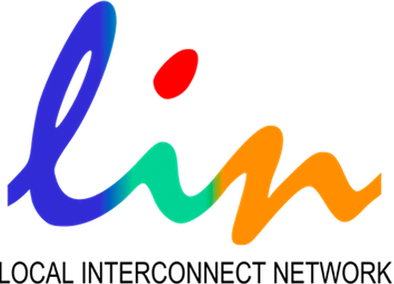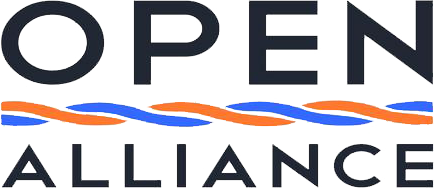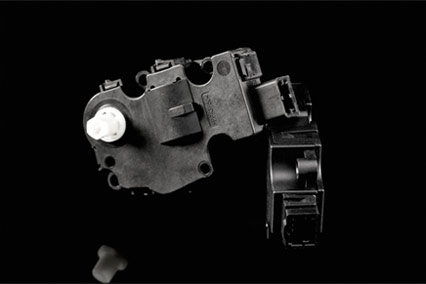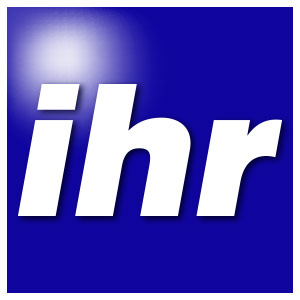![]()
Conformance Testing is Essential to Ensure Your Software Complies with Industry Standards and Regulations
Building on over 30 years of industry experience, we have developed unique test processes that go beyond standard specifications. Since 2010, our test house in Germany is accredited by DAkkS according to ISO 17025. Our processes deliver exceptional results and have earned us a trusted status with most Car Makers in EU and US.
With a test lab now in the Detroit metro area we can test and certify your products according to all major industry standards.
With a local presence in Detroit, we are now pleased to offer 3 weeks or less lead times for LIN 2.x, J2602 and ISO17987 testing, along with local support for our customers in the Detroit Metro Area.
We don’t just test your device, we can also help you solve problems discovered during testing. We provide an explanation of each test case issue and how to address it. Our engineering experts can also review your code and suggest potential changes, upon request.
In addition to conformance testing we also perform:
- Performance Tests
- Stress Tests
- Interoperability Tests
- Switch Tests
- Application Specific Tests
- Customer Specific Tests
- ESD Tests
We will help to ensure functionality and robustness for your application by testing on ECU level as early as possible in the development phase. Request a quote today for the type of testing you require.
LIN Testing
We are experts in LIN (Local Interconnect Network) Conformance testing. We support all variations of the standard, including custom OEM requirements. With a test laboratory now also located in the Detroit Metro area, we are able to accommodate short lead times for our US customers, with partial retesting and on-site support available.
Supported Test Standards: LIN 1.3, 2.0, 2.1, 2.2, ISO17987, J2602 and VW1.8
Our typical lead times are 3 weeks or less.
CAN Testing
CAN (Controller Area Network) was internationally standardized and is defined in the specification ISO 11898. We offer conformance testing supporting both CAN and CAN-FD standards, as per ISO 11898 requirements, including OEM specific diagnostic testing.
Supported Test Standards: ISO 16845, GMW 14241, GMW 3110, GMW 17106
Our typical lead times are 8 weeks or less.
Ethernet Testing
Ethernet is the most recent automotive industry introduction. We continue maintaining current standards and are an active participant in the Automotive Ethernet community. This allows us to stay current with the changes and introduce these into our Conformance testing process.
Supported Test Standards: TC8 and TC11 (Layers 1-7)
Our typical lead times are 8 weeks or less.
Testing Types
Click on the blue accordions below for more information. Our test portfolio includes:

LIN (Local Interconnect network) is a serial network protocol used for communication between components in vehicles. IHR GmbH is the leading force to migrate LIN specification into an ISO standard. Our testing practices go beyond standard specifications and provide consistent high-quality results.
IHR GmbH offers test certificate of your ECU according to LIN standards 1.3, 2.0, 2.1, 2.2, ISO17987 and VW1.8

The J2602 protocol of SAE (Society of Automotive Engineers) was developed based on the LIN 2.x protocol.
IHR GmbH offers conformance tests according to the test specification J2602-2, including additional GMW specific options.
With IHR GmbH you can either order a complete test, including data link layer and physical layer, or a partial test, such as transceiver only.
Based on the specification J2602-2, we also provide additional tests with detailed information on stability and robustness of your application. Most of these tests are OEM specific, such as sleep/wake cycle stress test and transceiver management.

CAN (Controller Area Network) was internationally standardized and is defined in the specification ISO 11898 with layer 1 (physical layer) and layer 2 (data link layer). Most of the applications assume ISO 11898-2 (High Speed-CAN) and ISO 11898-3 (Low Speed-CAN) for the physical layers. Test specifications are based off these standards and are designed to meet conformance requirements.
IHR GmbH offers testing according to ISO 11898 and ISO 16845.

CAN-FD has is being seen as the flexible alternative to CAN. Over the years, the complexity and number of CAN bus systems have increased steadily. To cope with these demands, like high bus load and selective wake-up, the classical CAN bus migrated to a CAN FD bus with flexible data rates, also allowing for higher transmission rates.
IHR GmbH offers testing according to ISO 11898 and ISO 16845.

GMLAN (General Motor’s Local area network) is an application and transport layer protocol, based on the classic CAN format.
We offer testing in high-speed mode, mid-speed mode or low-speed mode, depending on the test device (control unit) and according to GM specification GM 14241.
We offer complete automated diagnostic testing according to GM specification GM W3110.
We offer conformance tests for ECU according to CG2474, which is the leading specification for components and diagnostics in the GM group. This conformance test is a mandatory demand for all ECUs to fulfill the GGSE ECU Diagnostic Infrastructure Requirements.

Automotive Ethernet Testing
As consumer demand for in-vehicle connectivity and advanced driver assistance (ADAS) continues to grow, the automotive industry is under constant pressure to deliver competitive, innovative features while minimizing cost. Automotive Ethernet technology allows multiple in-vehicle systems to simultaneously access information over a single unshielded twisted pair cable. With IHR GmbH as an active member in the working groups TC8 and TC11, we offer a full range of corresponding tests to support that.
OPEN Alliance TC8: Automotive Ethernet ECU Test Specification
- Layer 1: Physical Layer OPEN Alliance BroadR-ReachTM (OABR)
- Layer 2: Data Link Layer, IEEE Ethernet MAC + VLAN (802.1Q), AR
- Layer 3: Network Layer, IP, ICMP
- Layer 4: Transport Layer, UDP, TCP, DHCP
- Layer 5-7: Application Layer, SOME/IP, SD
Robustness & Performance Tests
- RFC 2544
- RFC 2889
Switches TC11 (IEEE 802.1Q / IEEE 802.1p)
- General Switch Requirements
- Address Resolution (ARP)
- VLAN
- Quality of Service (QoS)
- Filtering
We also perform tests according to all common OEM specifications.
Note: BroadR-Reach™ is a trademark of Broadcom Limited in the U.S. and/or other countries.

PSI5 (Peripheral Interface 5) is a common interface that connects external sensors in the car with the ECU.
IHR GmbH is the co-editor of the test specification V1.3 as part of the PSI5 working group. The test specification V2.0 was actually defined under the leadership of IHR GmbH.
IHR GmbH possesses a profound knowledge in testing ECU’s and sensors with the PSI5 interface. We perform tests according to all PS15 specifications from V1.3 to V2.x.
IHR GmbH also offers professional training in the PSI5 environment.

ESD (Electrostatic discharge testing) is a very important part of the ECU testing.
IHR GmbH offers ESD tests according to ISO10605. The tests range up to 8kV contact discharge and 25kV air discharge respectively.
The following standards are supported:
- ISO10605
- GMW3097
- EMC-CS-2009.1 (Ford)
More standards can be provided on request.

LIN SNPD
SNPD (Slave Node Position Detection) is the Auto Addressing of LIN slave nodes after power-on.
IHR GmbH performs tests according to following specifications:
Standard Actuators
- Specification 1.x
- Test Specification 0.10 (LIN 1.3)
- Specification 4.x
- Test Specification 1.4 (LIN 2.x)
- Specification5.x
- Test Specification 1.5 (LIN 2.x)
LIN SNPD
- Slave node position detection R1.1 / Bus Shunt R1.0
- Test specification for lighting applications according to Bus Shunt Method Rev 0.10
